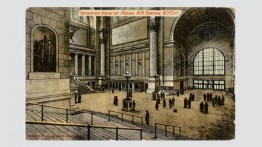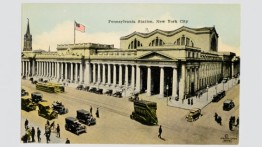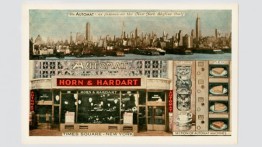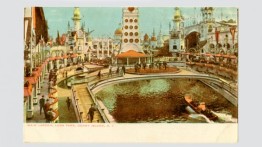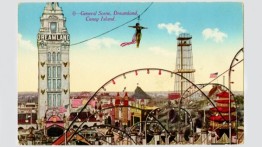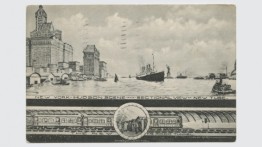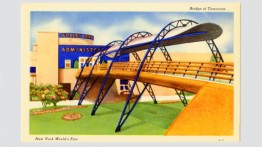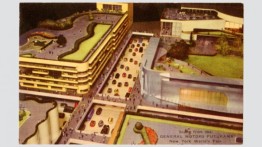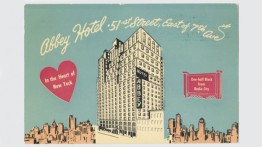Joseph Covino New York City Postcards
Dating from the late 19th to mid-20th century, this collection is among the largest of its kind. Its nearly 3,800 postcards were donated to the Architecture Archive between 1999 and 2003 by Joseph Covino, an avid postcard collector.
Most of the postcards document New York City’s built environment and infrastructure, including many no-longer-extant buildings, interiors, businesses, and public spaces. They record a city in constant flux, capturing several decades of urban development across all five boroughs, from the city’s piers, airports, subways, and armories to its public parks, aquariums, monuments, and libraries. Some subjects, including hotels, restaurants, and museums, as well as Coney Island and the 1939 World’s Fair, are extensively documented, attesting to the diverse commercial and public interests that shaped both the subjects depicted and the medium of the postcard itself. In addition to recording the city’s evolving physical form, the postcards are also commercial artifacts marking the rise of consumer culture, the growth of middle-class tourism, and the development of publishing technologies that fostered their widespread distribution and explosion in popularity during the first decades of the 20th century.
The Archive is in the process of cataloging and digitizing this collection for web-based public access, an initiative supported by the Gladys Krieble Delmas Foundation and a generous gift from Jack Eichenbaum. Online exhibitions of postcards from the collection include Views Along Broadway, New York City Beaches: Coney Island and Rockaway at the Turn of the 20th Century, and Postcards from Under New York.

